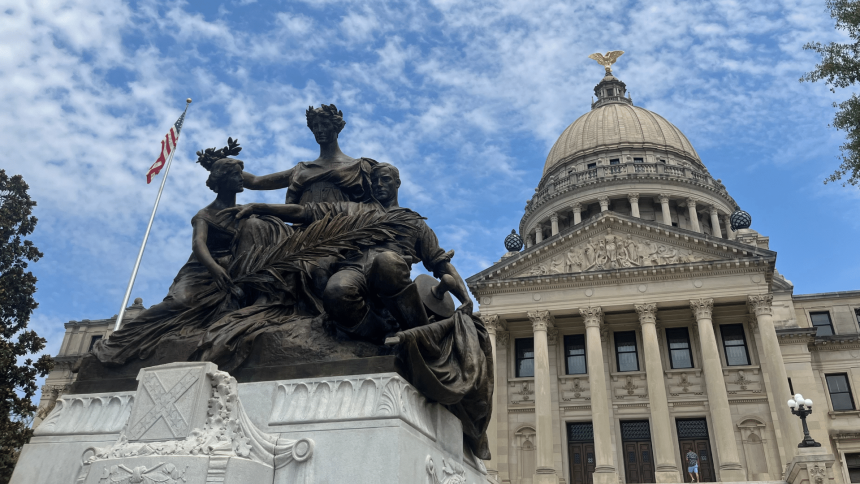In the latest move to restore Mississippi’s ballot initiative process, the House of Representatives voted on Wednesday to allow residents to once again be able to propose law changes but not without a few legislative caveats.
House Concurrent Resolution 11, authored by Rep. Price Wallace, R-Mendenhall, would require a minimum of eight percent of total qualified voters – or 166,000 based on the 2023 election – to sign for an issue to be placed on the ballot. The stipulations presented, though, are that the people would not be able to make changes to the state constitution, abortion laws, PERS, or local laws. Additionally, they would have to present how much it would cost if an initiative requires state spending. The resolution would also allow the legislature to introduce an amendment to a proposed initiative that would simultaneously appear on the ballot.
While Republicans carried the 80-39 final vote, Democrats vehemently opposed the bill due to the restrictions set forth. House Minority Leader Robert Johnson, D-Natchez, who introduced a different bill to restore the process to its original form, called Wallace’s legislation a workaround for lawmakers.
“Here it is right here,” Johnson said, holding up his own version of a ballot initiative process bill – one that currently sits in limbo. “You know what happened to that bill? No, because I don’t either. It’s not before us. It’s not in any committee. I don’t know where it is.”
“But now we have a bill here today that allegedly restores the right of the initiative process to the people, and in that bill, it does everything but restore that right. It prohibits what you can talk about. It increases the signatures, and it says if the legislature doesn’t like what you voted for…they can overturn it.”
Rep. Fred Shanks, R-Brandon, disagreed with Johnson. Shanks, instead, called the resolution a “vehicle that we are just trying to get to the Senate,” where further amendments could be made.
Democrats opposed that mindset, arguing that the House should not merely send a makeshift bill to their cross-chamber counterparts and hope that eventually, the two chambers will come to an agreement on what restoration of the ballot initiative process looks like.
“The gentleman indicated that he wanted to utilize this as a vehicle to go across to the Senate. I submit to you that this vehicle is a Ford Pinto,” Rep. Chris Bell, D-Jackson, said. “This vehicle is not worthy enough to go across to the Senate. If you ever looked at the reason why the Ford Pinto was one of the worst vehicles created by [Ford] is because it burst into flames upon any accidents or collisions.”
Even with arguments being presented from both sides, all Democratic-led amendments were shut down by the Republican-heavy chamber. The resolution now heads to the Senate where lawmakers will have a chance to evaluate.
What happened to Mississippi’s ballot initiative process?
In 2021, Mississippi became the first and only state to have a ballot initiative process in place before taking it away. Following a grassroots medical marijuana campaign that garnered 74 percent of residents’ votes, the Supreme Court found the initiative to be unconstitutional due to a section of outdated Mississippi code. Madison Mayor Mary Hawkins Butler, who brought forth the lawsuit against the initiative being unconstitutionally certified, successfully argued that state law required a certain portion of required signatures must come from each of Mississippi’s five congressional districts as they existed in 2000. The only problem was that Mississippi lost its fifth congressional seat after the 2000 census, meaning the state only had and still has just four congressional districts.
Technicalities aside, the legislature did come through by implementing a medical marijuana program in 2022. However, they have not been able to come to terms on restoring the ballot initiative process. Over the past three sessions, the House and Senate have struggled to meet on a signature count with the Senate consistently asking for 240,000 signatures in comparison to the previous requirement of 106,000. Republican lawmakers are also concerned that giving voters the plenary authority to circumvent the legislature could eventually backfire, hence the stipulations presented on Wednesday.








